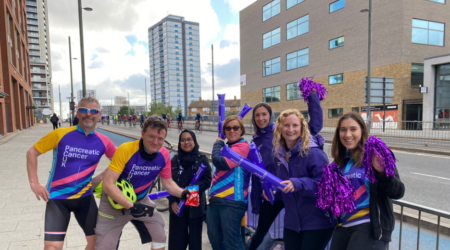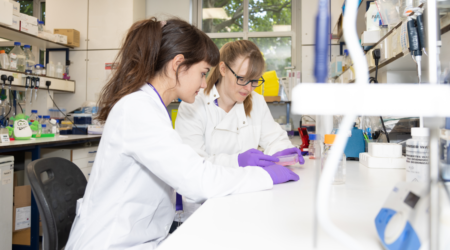The project
This project aims to understand mood and quality of life symptoms in pancreatic ductal adenocarcinoma UK patients better to inform better screening in these patients to improve their quality of life. Pancreatic ductal adenocarcinoma patients are needed to help develop the questionnaire for this study.
Olivia Smith from Lancaster University will hold a focus group which will be in the form of a virtual meeting on Microsoft Teams to get feedback on the relevance of the symptoms we will explore in the questionnaire, the acceptability and clarity of the questionnaire, and the questionnaire length.
What are you going to do?
By holding a focus group online at a time that is suitable for everyone, Olivia can get feedback on the relevance of the mood and quality of life symptoms we will be exploring, the acceptability and clarity of the questionnaire, and the questionnaire length.
Why is this research important?
Olivia need to make sure that the questionnaire is appropriate and relevant for pancreatic ductal adenocarcinoma patients. This study will help to inform better screening for pancreatic ductal adenocarcinoma patients to improve their quality of life.
How to get involved
This project is aimed at pancreatic ductal adenocarcinoma patients specifically. If there is not enough pancreatic ductal adenocarcinoma patients to do the focus group, people with a previous lived experience of pancreatic ductal adenocarcinoma will also be welcome to take part in the focus group, so please don’t hesitate to enquire.
No scientific background or prior experience is needed to take part in this opportunity.
Next steps
If you are interested in getting involved in the focus groups, please email Olivia Smith (o.m.smith1@lancaster.ac.uk) quoting the involvement reference ‘RIN opportunity’.


